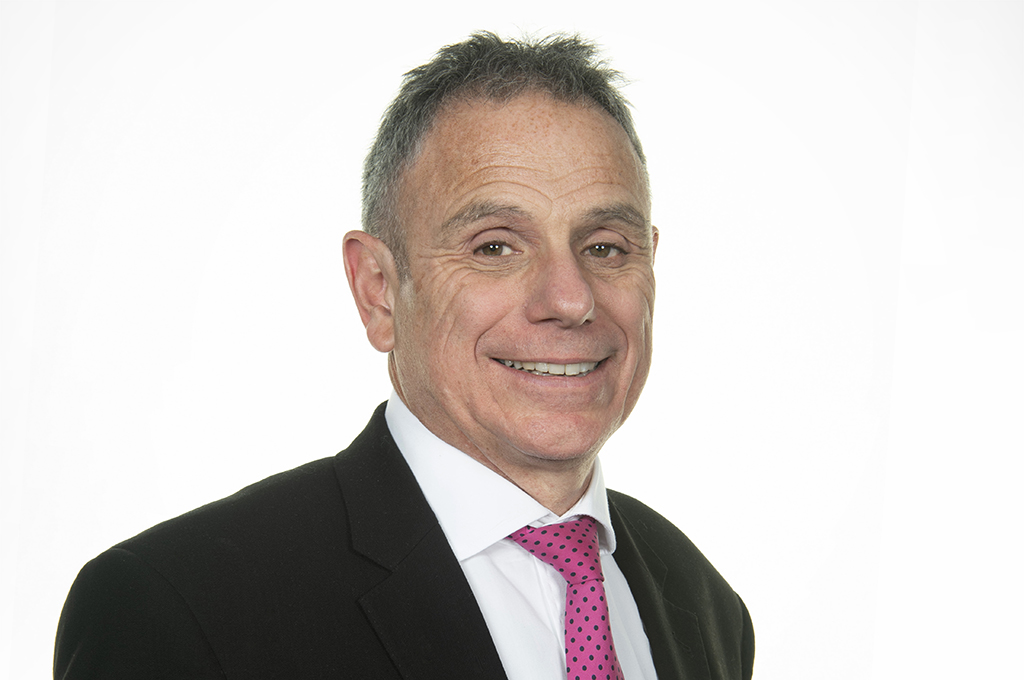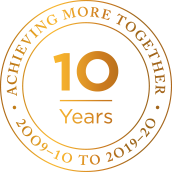Nick Hudson is the Chief Executive Officer of Ormiston Academies Trust.
By Nick Hudson
29 June, 2020
Blog article first written for the Big Education “Learning from Lockdown” blog site and published on 26 June 2020.

My founding chair asked me recently, “What’s enabled us to weather the challenges COVID-19 has thrown at us?”
“The values you instilled into the heart of Ormiston, when you were establishing the trust over 10 years ago,” was my reply.
To cynics that might be interpreted as the response of a sycophant CEO, or a leader who has been poring over too many leadership articles during lockdown. My answer was genuine, garnered from conversations with principals, trustees and staff – each reflecting our overarching value, Achieving More Together. In no way do I wish to convey the impression we have got everything right throughout this crisis, as I’ve believed from the outset that mistakes will be made. As leaders, our job has been to model generously of spirit, stay optimistic, demonstrate empathy, and try to understand. What I do believe is that Ormiston Academies Trust’s values rose to the surface across our organisation in a way I hadn’t witnessed before, they enabled us to communicate through listening and learning.
From the outset of lockdown OAT had to embrace its biggest challenge. How could we navigate our way through the crisis as a geographically dispersed trust of 40 schools stretching, north to south, from Runcorn to the Isle of Wight, and west to east, from Sandwell to Great Yarmouth? I was reminded of a Michael Fullan’s leadership mantra: “relationships, relationships, relationships”. There was an imperative to maintain contact between the constituent parts of the trust, to ensure communications. Our solution was to set up weekly virtual meetings based around key teams, our regions and phases. Previous attempts to utilise the technology have always been problematic – with poor connections and failed dial-ins being our common experience. Within days of home working becoming our new normal we were meeting with colleagues and learning from one another how to master the technology and use it to maintain our relationships.
It felt important that my presence at these meetings, as CEO, along with that of my colleague executives, was established from the outset. I don’t chair any of the meetings, as this has remained the responsibility of our regional and phase directors. I remember during the first round of meetings saying, “I’ve been listening to you as I want to understand your challenges, your perspectives.” As the government’s response to the pandemic unfolded the executive and I have engaged in a variety of ways – framing OAT’s approach, interpreting DfE guidance, co-ordinating the trust’s responses and liaising with trustees. The leadership imperative was to focus on our academies, our communities, the education, and not get drawn into arenas which are not our specialism. I’ve been struck how many people seem to believe they understand epidemiology when ten weeks ago few people could say or spell the word. As educators our job was to focus on supporting young people to learn using our collective professional expertise, without getting distracted.
Face to face communications
Over the past twelve weeks I have prioritised my ‘face to face’ communication with our principals through this virtual meeting structure. I wanted to be able to hear from our key leaders regularly, to understand their priorities, to gain first-hand accounts from them about what their staff were saying, how their staff were feeling. This is not a question of not trusting others rather, in this moment, I regarded it as my number one task as CEO: to be seen and to be alongside – albeit in a limited fashion – our principals who were having to deal with the most unprecedented, unique leadership challenge any of us have faced.
As we enter the twelfth week of the crisis and primary schools are extending their opening to more pupils there continues to be a need for our connectivity to remain. Planning to open more widely has been a collective endeavour – one based around sharing rather than developing blueprints to be implemented by all, regardless of context. This approach is suited to networks communicating regularly and has actually benefited from working in the virtual environment we are all becoming more accustomed to. I’m realising that it is a more instinctive, instantaneous way of working because meetings and exchanges are occurring in real time, colleagues speaking from within, or near, the school where the changes need to be implemented swiftly. Ironically travelling to a regional meeting to share and problem-solve actually removes us from the very environment in which the implementation is required. To flex a phrase from the pandemic, travelling to be together would socially distance us from the very challenges we face.
What have we learnt?
We are all asking ourselves what we have learnt that we might wish to transfer from our experiences in these unprecedented times to the future when we aren’t constrained by lockdown. As CEO I want our organisation to explore the following:
For many of us this period has encouraged us to reflect, to reappraise, to accept that our known knowns are not so certain after all. In the words of musician, Paul Weller:
“And the more I see, the more I know. The more I know, the less I understand… I’m the changingman, built on shifting sands.”
I’ve certainly seen more, over the last few weeks and as the sands have shifted, I hope I have remained humble enough to accept that there is more to understand in these unique times. Let’s remain true to our values and keep communicating.
Category: Blog
Tags: Coronavirus, Covid-19, Lockdown, Nick Hudson
Nick Hudson is the Chief Executive Officer of Ormiston Academies Trust.
